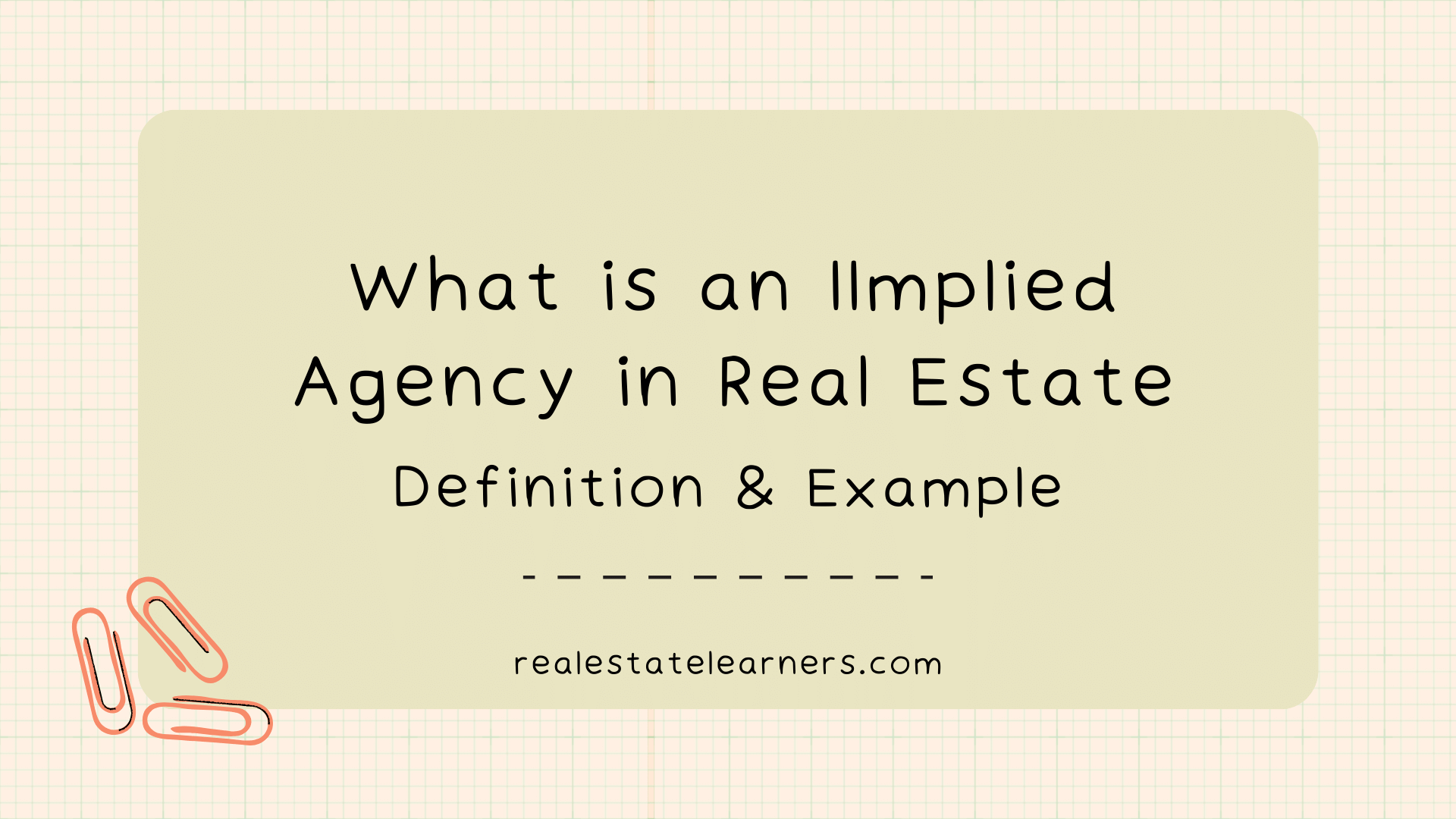When it comes to real estate, there is more than just buying and selling properties. A concept known as “implied agency” plays a crucial role in the industry. Implied agency actual state refers to an unspoken agreement between a client and their agent, indicating that both parties have agreed to work together to achieve a common goal.
In this post, we will discuss implied agency in real estate, how it affects buyers and sellers, and the importance of understanding this concept.
What is an implied agency in real estate?
An implied agency in real estate refers to a relationship between a client and an agent that is not explicitly stated or formalized. This type of agency can occur when a client’s actions or behavior imply that they have given authority to the agent to act on their behalf.
For example, if a client asks an agent to show them properties and then proceeds to make an offer through that agent, an implied agency may be formed.
Implied agency can also occur when a client has worked with an agent in the past and continues to seek their services for future transactions without signing a formal agreement.
In some cases, an implied agency can also lead to potential conflicts of interest, so all parties must communicate openly and establish clear boundaries to avoid misunderstandings or disputes.
Creating a written agreement can help clarify the terms and conditions of the implied agency and protect both parties in case of any disputes or misunderstandings.
What is Implied Authority in Real Estate?
Implied authority in real estate refers to the power or authority given to an agent by a client through their actions and conduct rather than explicitly stated in a written or verbal agreement. This type of authority allows the agent to act on the client’s behalf in ways necessary or customary for carrying out their duties as an agent.
For example, suppose a client gives their agent a set budget to purchase a property. In that case, the agent may have implied authority to make offers on properties within that budget without seeking client approval for each offer.
Implied authority is essential to real estate transactions as it allows for smoother and more efficient handling of tasks between the agent and client. This type of authority can also be limited and should always be exercised within reasonable and ethical boundaries to avoid potential conflicts or disputes.
What is the Difference Between Expressed Agency Vs. Implied agency?
- The expressed agency is a formal and explicit agreement between an agent and a client, while the implied agency is formed through the actions and behaviors of both parties.
- The expressed agency requires a written or verbal contract, while the implied agency does not necessarily need to be documented.
- The expressed agency clearly outlines the terms and conditions of the relationship, while an implied agency may lead to potential conflicts due to its ambiguous nature.
- Expressed agency is typical in commercial or high-value real estate transactions, while implied agency may be more prevalent in residential or smaller-scale transactions.
- Expressed agency provides a clear understanding of the duties and responsibilities of both parties, while implied agency may lead to misunderstandings or disputes if not communicated and managed effectively.
- Expressed and implied agency are two different types of relationships between an agent and a client in real estate. The expressed agency is more formalized and clearly understands the terms and conditions, while the implied agency can lead to potential conflicts if not managed properly.
What are the Pros and Cons of Implied Authority in Real Estate?
Pros:
Implied authority can make transactions more efficient and save the agent and client time.
It allows for flexibility in handling tasks and making decisions without constantly seeking approval from the client.
In some cases, implied authority can lead to stronger relationships between the agent and client, as it is based on trust and mutual understanding.
Cons:
Implied authority can lead to misunderstandings or conflicts if not communicated and managed.
It may need to provide a clearer understanding of the responsibilities and duties of both parties, which could lead to disputes.
In some cases, implied authority can create potential conflicts of interest between the agent and the client.
Conclusion
In conclusion, implied agency is a crucial aspect of the real estate industry. It allows for smoother transactions and helps protect buyers and sellers from misunderstandings or miscommunication.
With implied agency, agents are expected to act in the best interests of their clients, even if it is not explicitly stated in a written contract.
This creates trust between agents and their clients, making the buying or selling process less stressful.
Express agency real estate is also essential as it provides a clear understanding of the responsibilities and duties of both parties. It is always recommended to have a written agreement in place to avoid any potential conflicts or disputes.
While the implied agency may be more prevalent in residential real estate, all parties need to understand its implications and communicate openly to ensure a successful transaction.

Corey has over 15 years of experience as a real estate broker and educator. He is dedicated to providing valuable insights and guidance for those looking to enter the real estate industry.

